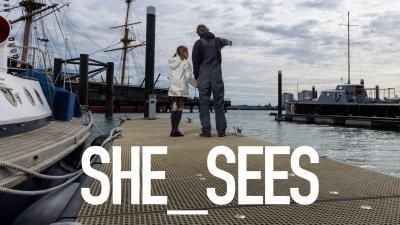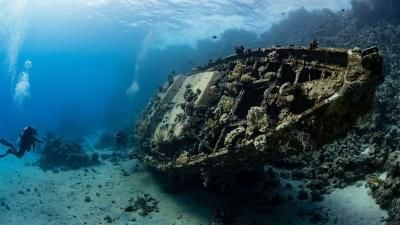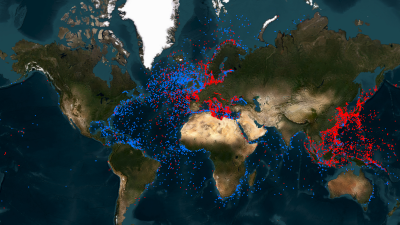
Landmark SHE_SEES exhibition comes to Portsmouth
After its launch at last year’s London International Shipping Week, our SHE_SEES exhibition is opening at the Portsmouth Historic Dockyard.
Insights from the Project Tangaroa coalition
This page is approximately a 3 minute read
This page was published on

Many of these wrecks lie close to vulnerable coastal communities, important fishing grounds, fragile marine ecosystems, marine protected areas and world heritage sites.
In response to this threat, Lloyd’s Register Foundation provided funding to Waves Group and The Ocean Foundation to establish Project Tangaroa – an international community of experts working to develop international standards and protocols to manage these potentially polluting wrecks (PPWs).
In June 2025, Project Tangaroa published the Malta Manifesto, which contained the key calls to action needed to address the PPW threat. Now, this new in-depth report underpins the Manifesto, with insights from across the coalition – including marine scientists, maritime archaeologists, salvage professionals and other relevant experts.
As well as exploring all aspects of the PPW issue in greater depth, this report makes a range of more detailed recommendations to tackle the challenge. These must be collectively implemented through the drive and influence of a range of stakeholders working across the maritime system and beyond. It is also recommended that key actions aligned with advocacy, convening, standards and fundraising should be given additional catalytic support by a dedicated secretariat, such as Project Tangaroa.
For implementation by PPW stakeholders, actively supported by a secretariat:
For implementation by PPW stakeholders:
This report provides a comprehensive overview of the global threat posed by potentially polluting wrecks (PPWs) and calls for international action to prevent environmental damage.
Download Potentially polluting wrecks: protecting people and planet (PDF, 4.81MB)If you wish to use and reference the Potentially polluting wrecks: protecting people and planet report in your own work, please include the following DOI: https://doi.org/10.60743/h3rh-q263
Example Citation in IEEE Style:
Lloyd's Register Foundation, “Potentially polluting wrecks: protecting people and planet,” Lloyd's Register Foundation, 2025. doi: 10.60743/H3RH-Q263.
Underpinned by this report, the Malta Manifesto is an urgent call to action to marshal the resources and collective will to protect people and planet from catastrophic oil pollution.
Read the Manifesto
